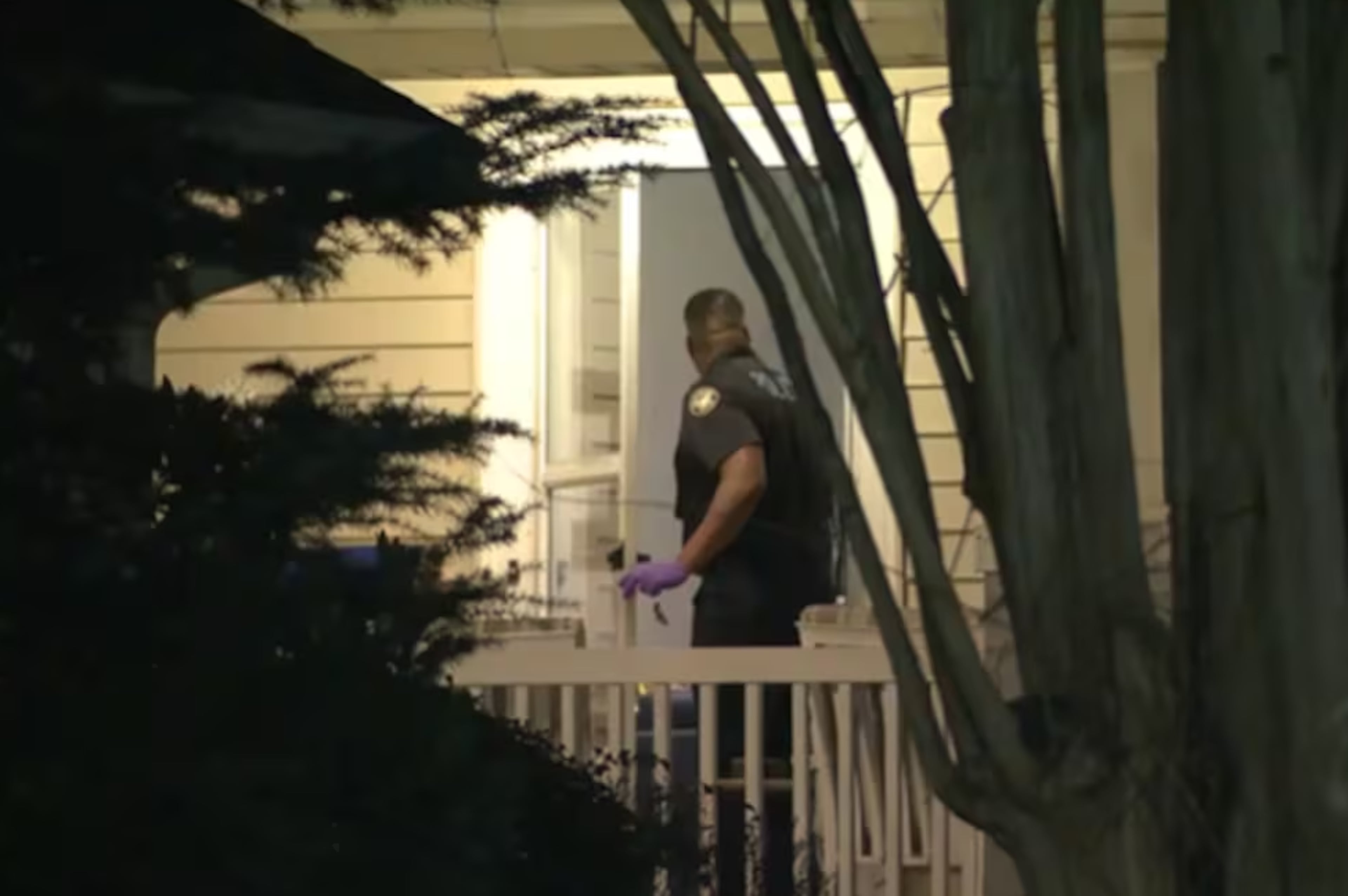Clayton County superintendent tries to lead in turbulent times

Two years ago, with the state threatening to take away millions in school funds from his district, Clayton County Superintendent Morcease Beasley loaded hundreds of students onto buses for a trip to the Capitol.
He wanted Georgia legislators to see the faces of children who would be impacted if the leaders cut jet fuel tax collections for school systems like Clayton that have airports in their backyards. Most of Hartsfield-Jackson International Airport is in Clayton.
The move left his boss, Clayton County Board of Education Chairwoman Jessie Goree, with a profound admiration for the district leader.
“Our personalities are so alike,” Goree said. “You have to take a stand. It’s just like [Rep.] John Lewis said, ‘If you see something wrong, you’ve got to say something about it.’ You can’t just stand there and be silent.”
That willingness to take a stand has helped Beasley, 50, win over legions of fans in Clayton County and his share of detractors.
“I have a passion for justice, I have a passion for what’s right and passion for what’s fair and what’s equitable,” said Beasley, who spent the first 12 years of his life in Hollis, N.Y., in the borough of Queens. “I will use my platform to command those things of our society and our leaders. I don’t have a problem with that.”
His supporters say he has boosted the Science, Technology, Engineering, and Mathematics programs by adding classes and pushed for the construction of a new school with the best equipment to meet the needs of those students.
He also has partnered the school system with local businesses and government to add more vocational training for students who don’t plan to go to college. For instance, 12 students from Charles Drew High School in Riverdale and Mundy’s Mill High School in Jonesboro last month graduated from the district’s three-year Firefighter/Emergency Medical Services Apprenticeship Academy. The Clayton County Fire & Emergency Services Department has hired seven of the graduates.
And Beasley has been a great ambassador for a school system that is still often known solely for its loss of accreditation in 2008 because of infighting between the board and the superintendent at the time. The district gained its accreditation back later that year.
“Those issues have been long addressed, but it simply reappears anytime there is some negative behavior in the school system or for that matter Clayton County,” said Clayton State University President Tim Hynes, who has worked closely with Beasley on education programs as members of the Clayton County Chamber of Commerce.
Beasley’s detractors, however, see a leader who has made the district top-heavy with deputy and assistant superintendents who weren’t there before he took the job in 2017. They also question his spending, including a 2018 trip he and other administrators made to Toulouse, France, to tour the city’s career tech program as part of Clayton’s plan to develop a career academy.
“He’s a great speaker,” said Carol Yancey, a Clayton resident who has pushed for more spending transparency in the district. “He has charisma. He could sell swamp land and some would buy it. I’m just not one of them.”
Beasley understands how he can be both hero and villain. Running a school system is tough and what works for some, may not for others.
“I know there are some things I can’t fix as a superintendent or I can’t fix as an individual,” he said. “I try not to carry that burden around.”

For instance, his decision to begin the year virtually when schools begin the 2020-2021 academic year on Monday was praised by many Clayton residents. But he recognizes it will create a hardship for parents who have to work and can’t be at home with their children because of virtual instruction.
“We looked at the data and tried to make the best decision to have the best outcome,” Beasley said.
A teacher is born
Beasley grew up, the middle child of three boys. And from the beginning, he was a serious child with a penchant for education.
“When I was a child, I loved to play school,” he said. “I had two brothers and they were my students. I gave each of them a pillow and that was their desks.”
He left New York City for Birmingham. Alabama, when he was in the eighth grade after years of spending time in the southern city with his grandmother during summers. He was valedictorian at the Birmingham’s Phillips High School and entered college at the University of Montevallo in Montevallo, Alabama, as a pre-med student.
He later switched to the school’s math program after he was told Montevallo’s pre-med track was for only two years and he would have to transfer, which he did not want to do.
He worked at Jefferson Federal Savings & Loan in college, which grew his love of math and taught him business management. A management job he had been promised at the bank after his graduation vanished when the bank went under.
“So I decided to substitute teach,” Beasley said.
He began teaching math at Phillips, his alma mater, while also getting his master’s degree in education. After five years, which included teaching at community colleges on the side, he was named assistant principal at the school. He became interim principal at 28 when the school’s leader moved up to the central office.
He was recruited by former DeKalb County Superintendent Johnny Brown in 2002 to be principal of Stephenson High School, a position Beasley said he loved.
“I consider Dr. Morcease Beasley to be an outstanding educator,” said Brown. “He is a master of using data and is results driven. I’ve always believed that Clayton County was fortunate to have a such a quality leader.”
During his fifth year at Stephenson, Beasley took at job as a deputy superintendent in Port Arthur, Texas. But with his wife and children entrenched in DeKalb, he never moved and for three years he did a grueling commute between Georgia and the Lone Star State.
“That was very tough because I drove most of the time because plane tickets were too high,” he said. “So I would leave Texas early- to mid-afternoon on Friday and get here in 11 or so hours. I would leave on noon Sunday to get back to Texas so I could get a good night’s rest for the next day.”
He returned to Georgia as principal at DeKalb’s Columbia High School, where he stayed for a year before becoming deputy superintendent of teaching and learning for the district from 2010 to 2016. He left for Clayton after Superintendent R. Stephen Green, the district’s leader at the time, did not renew his contract.
He became Clayton’s chief schools improvement officer in 2016 before being tapped for the top job in May 2017.
His tenure has been tested. When Gov. Nathan Deal decided to end fuel tax collections in 2018, the school system stood to lose about $9 million annually.
For a district whose tax base was already operating at a disadvantage because as much as almost half of Clayton residents are renters -- property taxes make up a significant portion of school funding -- the loss of any income can be monumental.
After taking students to the state Capitol to a put face on the cut in fuel tax collections, Beasley took the group to Delta Air Lines’ headquarters the next day for a protest he hoped would get the airline giant’s attention. After the event, Delta fed the group Chick-fil-A and later committed to helping the school system financially through the end of 2019.
“He’s definitely about the kids,” said Shannon James, president and CEO of Aerotropolis Atlanta Alliance, a business group focusing on promoting development around Hartsfield-Jackson. “They like his energy. They like this enthusiasm.”
He also tangled last year during the legislative session with state Rep. Valencia Stovall, who represents Forest Park in Clayton. The two feuded over charter school funding and accountability on how the school system was spending E-SPLOST money, with Stovall at one point calling on Beasley to resign.
While some issues still remain -- Stovall shared with the AJC an email she wrote last week about her continued concerns over charter school funding -- she also her relationship with Beasley has since been cordial and respectful. She said she no longer wants Beasley to step down.
The school system was also saw the tragic death of Elite Scholars Academy student Imani Bell, who died in August 2019 after collapsing during conditioning drills. According to an autopsy, the 16-year-old basketball player suffered from hyperthermia and rhabdomyolysis after exercising Aug. 13 in temperatures that reached as high as 97 degrees with a heat index of 103 degrees.
Today Beasley’s challenge is operating schools in a pandemic that is getting worse, not better. That has made him speak out.
After the Trump administration threatened to withhold education funding unless schools reopen to a traditional class day, Beasley took to Twitter: “Every community must now decide to prioritize safety of children/staff over threats to withhold $$ if not reopening face-to-face while the pandemic worsens. The situation is difficult enough. Our students, families, educators, & nation do not deserve this.”
Judy Jackson, who was his math teacher at Phillips High School before becoming his colleague, said she is not surprised by her one-time pupil’s success.
“I knew he was going to be an educator, even when he was in my class,” she said, pointing out that he often worked to help his classmates understand lessons. “He was always a leader.”


